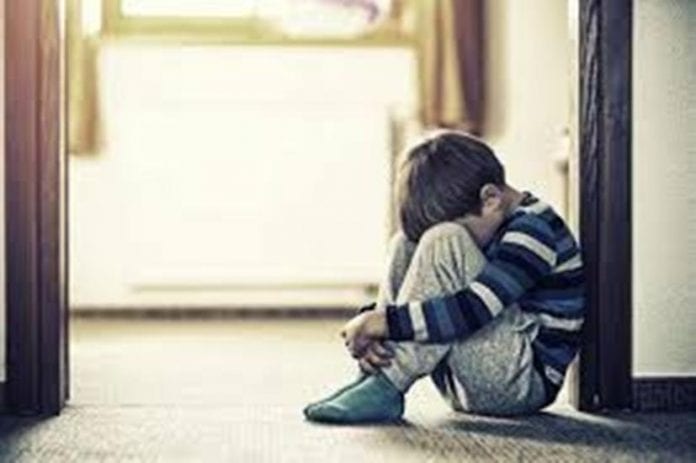- Recorded child sex offences across the UK at all-time high with 64,667
- More than 3,000 child sex offences recorded in Wales last year; a 36% rise from 2015/16
- The NSPCC calls for a comprehensive child sexual abuse strategy tackling the issue in Wales
More than 3,100 child sex offences were recorded by police forces across Wales over the last year, NSPCC Cymru/Wales reveals today.
The number of offences recorded in 2016/17 increased by 36 per cent from the previous year – with an average nine offences recorded each day.
Dyfed Powys Police saw the highest number of child sex offences recorded with 1,110, followed by South Wales Police with 976, North Wales Police with 754 and Gwent Police with 314.
The situation was mirrored across the UK, with police forces recording a record 64,667 child sex offences last year, representing a 15 per cent rise from 2015/16.
New figures obtained via a Freedom of Information request from the NSPCC to police forces across the UK found officers recorded crimes including rape, sexual assault and grooming – with 193 offences recorded against babies younger than aged one.
Across the UK a total of 13,876 crimes were recorded against children aged ten and under, while 2,788 of these crimes were perpetrated against children four and under.
In 2016/17, one in ten offences recorded by police were flagged as having an online element – a 59 per cent increase on the previous year.
Police forces in Wales have also been dealing with a high number of offences flagged as having an online element with 764 in 2016/17.
The total number of sex offences committed against children is unknown, as more children may not have come forward out of fear or embarrassment, or may not even realise they have been abused.
The NSPCC believes the dramatic increase could be down to a number of factors:
- Police forces improving recording methods.
- Survivors feeling more confident in disclosing abuse following high-profile cases.
- Online groomers becoming a significant problem with predators able to reach hundreds of children.
In Wales, the NSPCC is calling for the Welsh Government to build on the good work of the child sexual exploitation action plan, which was launched in 2016, and produce a child sexual abuse strategy that includes all forms of child sexual abuse.
But it is also vital that children feel able to come forward to disclose abuse. The NSPCC’s Speak Out Stay Safe programme visits primary schools across the UK – including 520 visits in Wales last year – to help children learn the signs of abuse in an age appropriate way, and what to do if they have been victims.
The NSPCC’s PANTS campaign, which uses a friendly animated dinosaur to teach children The Underwear Rule, educates children about what is sexual abuse and provides advice about how to stay safe from it.
Des Mannion, head of NSPCC Cymru/Wales, said: “This dramatic rise in recorded crimes is extremely concerning and shows just how extensive child sexual abuse is.
“These abhorrent crimes can shatter a child’s life, leaving them to feel humiliated, depressed, or even suicidal. It’s important that children recognise they are being abused and can speak out to stop the abuse. That is why it is crucial every single child who has endured abuse and needs support must get timely, thorough help so they can learn to rebuild their lives.
“These new figures suggest the police are making real progress in how they investigate sex offences against children.
“It is more important than ever that children are taught about the dangers of sexual abuse and how to stay safe from it. Early intervention, which includes services run by the NSPCC like Speak Out Stay Safe and PANTS, can educate children and help protect them from harm.”

| [donate]
| Help keep news FREE for our readersSupporting your local community newspaper/online news outlet is crucial now more than ever. If you believe in independent journalism,then consider making a valuable contribution by making a one-time or monthly donation. We operate in rural areas where providing unbiased news can be challenging. |



















